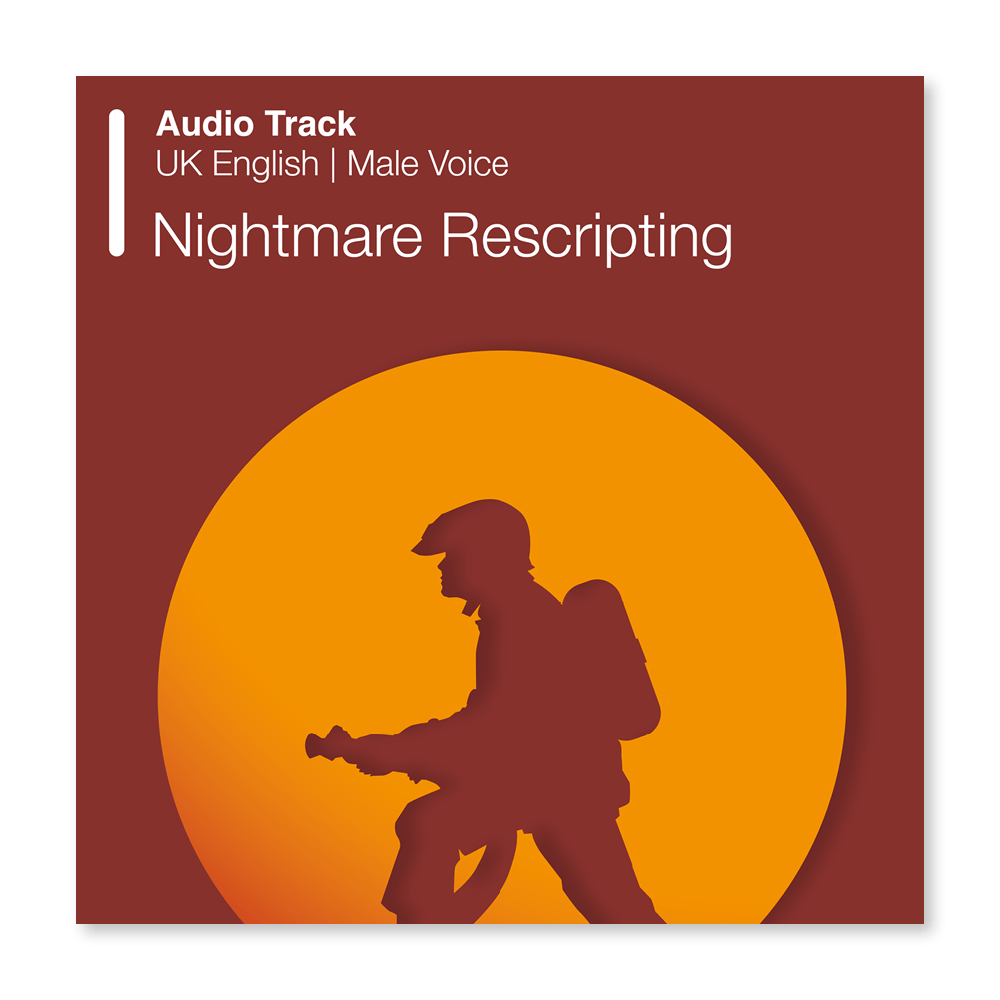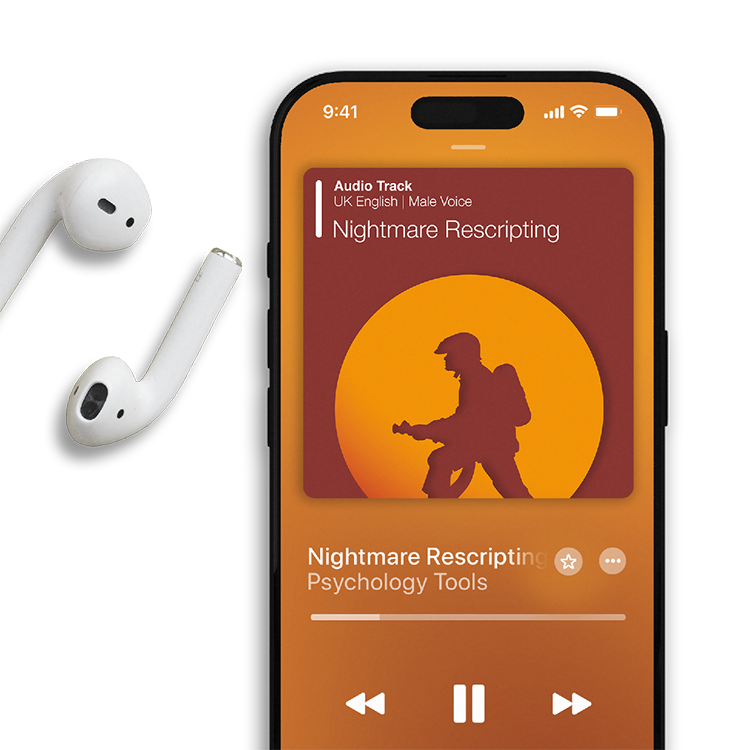Audio track (MP3)
A therapy audio track designed for skills development.
Audio script (PDF)
The script for a therapy audio track. Read along with an exercise, or record in your own voice.
This audio exercise guides clients introduces Nightmare Rescripting, a cognitive technique aimed at helping individuals with PTSD to decrease the frequency of recurring nightmares by transforming distressing dream narratives into more positive scenarios. Taken from the Psychology Tools For Overcoming PTSD audio collection.

A therapy audio track designed for skills development.
To use this feature you must be signed in to an active account on the Advanced or Complete plans.
The script for a therapy audio track. Read along with an exercise, or record in your own voice.
To use this feature you must be signed in to an active account on the Advanced or Complete plans.

Post-traumatic stress disorder (PTSD) is a condition that develops in response to traumatic experiences, resulting in symptoms including such as flashbacks, hypervigilance, and a current sense of threat. The Psychology Tools For Overcoming PTSD Audio Collection offers a structured series of exercises designed to help clients manage these symptoms effectively.
Nightmare Rescripting is designed to aid individuals suffering from repetitive nightmares by altering the narrative of these distressing dreams. This method is grounded in the retrieval competition theory, where a new, memorable dream script competes with the old nightmare for retrieval. This can assist in the processing of trauma memories, potentially ceasing nightmares altogether.
Just enter your name and email address, and we'll send you Nightmare Rescripting (Audio) (English GB) straight to your inbox. You'll also receive occasional product update emails wth evidence-based tools, clinical resources, and the latest psychological research.
Working...
This site uses strictly necessary cookies to function. We do not use cookies for analytics, marketing, or tracking purposes. By clicking “OK”, you agree to the use of these essential cookies. Read our Cookie Policy